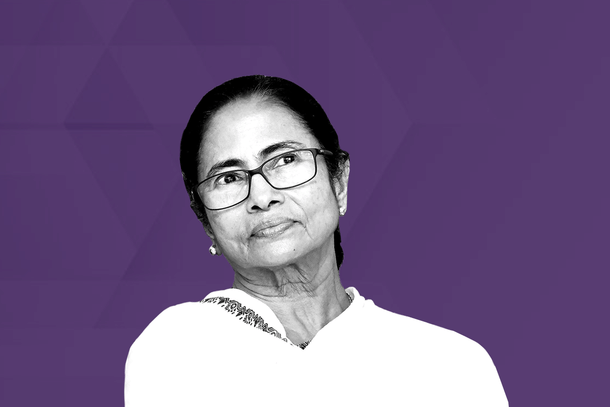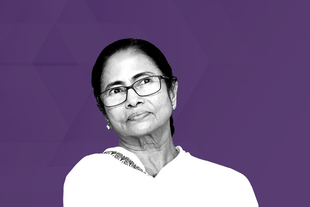Politics
The Good Life: Out Of 31 Days In October, Bengal Government Employees Will Work For Only 11; Here's Why
Jaideep Mazumdar
Sep 04, 2021, 06:22 PM | Updated 06:21 PM IST
Save & read from anywhere!
Bookmark stories for easy access on any device or the Swarajya app.


Bengal is set to script history, and for all the wrong reasons. Come October, state government employees will get a 16-day-long vacation--the first time ever in the country--due to Durga Puja and other religious festivals.
What’s more, the ‘benevolent’ Mamata Banerjee government has thrown in two more holidays and, counting the Sundays, state government offices will function for only eleven of October’s 31 days.
State government offices will remain shut from October 9 to October 24--a full 16 days--to allow Bengal’s pampered ‘babus’ to celebrate Durga Puja and other festivals.
According to the state’s approved list of holidays, Durga Puja holidays start from October 11 (Mahashasti). But October 9 is a second Saturday and hence a state holiday while the next day is a Sunday.
The four days of the Durga Pujas are October 12 (Saptami), October 13 (Ashtami), October 14 (Nabami) and October 15 (Dashami). October 16 (Saturday) and October 18 (Monday) have been declared as ‘additional holidays’ so that government employees can continue to enjoy their vacation.
October 19 (Tuesday) has been declared a holiday on account of ‘Fateha-Dwaz-Daham’--a Muslim festival celebrated in Bangladesh as the death anniversary of a 11th century Persian Hanabali Sunni preacher Abdul Qair Gilani.
No Indian state, except Bengal, declares a holiday on this Islamist preacher’s death anniversary. It is only celebrated in neighbouring Bangladesh. The Mamata Banerjee government declared this day as a public holiday after it came to power in the state.
The next day--October 20--is Lakshmi Puja and October 21 and 22 have been declared as ‘additional holidays’ for Lakshmi Puja so that state government employees can continue their long vacation without a break. October 23 is a fourth Saturday (a state holiday) while the next day is Sunday.
Thus, Bengal government employees will be returning to their offices only on October 25 after a 16-day vacation. No other state has ever given such a long vacation to its employees in India’s post-Independent history.
Bengal government employees will have two more holidays next month: October 2 (Gandhi Jayanti) and October 6 (Mahalaya). Add the two Sundays (October 3 and 31) and government offices will remain closed for 20 days in October.
Contrast this to Bengali Hindu-majority Tripura where, too, Durga Puja is a major festival. The Tripura government has declared only four days (October 12-15) as state holidays (see this). Only one day has been declared a holiday on account of Lakshmi Puja.
Gandhi Jayanti and Mahalaya are also state holidays in Tripura where state employees will be off for only eight days in the entire month.
Durga Puja is a major religious event in Assam as well. But the state has given its employees only four days off (October 12-15) for the Pujas. According to the state’s holiday list, the number of holidays in October is only six.
Durga Puja is celebrated in a major way in Jharkhand and Bihar as well. But while Bihar government employees will have only a two-day holiday (October 14 and 15) for the Durga Pujas, Jharkhand has declared a three-day holiday (October 13 to 15) for the Pujas.
Government offices in Odisha, another state where Durga Puja is a major festival, will remain closed on only the four days of the Pujas (Saptami, Ashtami, Nabami and Dashami). The total number of state holidays in Odisha in the month of October is eight, while it is five in Jharkhand and only three in Bihar.
But it is not only for Durga Puja that the Bengal government has gone overboard to grant a long vacation to its employees.
Take the case of November: Bengal government employees will be on vacation for 13 days in the 30-day month. That’s because November 4 is a holiday for Kali Puja and the next day (November 5) has been declared an ‘additional holiday’ for Kali Puja.
November 6 is a state holiday on account of Bhatri Dwitiya (Bhai Dooj) and November 7 is a Sunday. November 9 is an ‘additional holiday’ for Chhath Puja and the next day is a holiday for the actual Chhath Puja.
If a government employee takes leave on November 8 (Monday), (s)he can enjoy another uninterrupted vacation from November 4 to November 10, a total of seven days!
A huge number of government employees actually do that and very little to no work will actually be transacted even on Monday (November 8) because most employees will be on leave.
There are two more holidays in November: November 15 being the birth anniversary of Guru Nanak and November 19 being the birth anniversary of Birsa Munda.
Birsa Munda, a tribal freedom fighter, is a hero in Jharkhand which has many institutions and awards in his name. But, ironically, Jharkhand has not declared his birth anniversary as a holiday!
Similarly, though Chhath Puja is a major festival in Jharkhand since there are a large number of Biharis there (Jharkhand was carved out of Bihar in 2000), the day is not even a restricted holiday in that state.
Only Bihar has a two-day holiday on Chhath Puja. Assam, too, has a huge number of Biharis. But only November 10 is a holiday in that state.
Serving and retired bureaucrats who spoke to Swarajya said that this trend of declaring too many holidays in order to appease employees, especially the lower and mid-rung ones, is counter-productive and is a major contributor to the poor work culture that Bengal is notorious for.
“Imagine a private citizen, or a businessman or investor, wanting some permission or clearance on an urgent basis from the state government in October. The work just won’t be done because for two-thirds of the month, offices will be closed. This is terrible,” said a Bengal-cadre IAS officer who has been on deputation to New Delhi for many years now.
Bengal’s work culture was destroyed by the communists with their frequent calls for bandhs, hartals and strikes. In the private sector, the militant trade unionism that they encouraged also destroyed the work culture. Significantly, the communists and their affiliates used to issue calls for shutdowns just before a weekend or a public holiday in order to allow government and private employees a longer holiday.
The unionisation of employees, both in the private and in public sector (including the state government) resulted in indiscipline, rampant waywardness and a complete erosion of work ethics. This is why Bengal’s work culture hit an abysmal low during the 34 years of Left Front rule.
Things have gotten only worse since Mamata Banerjee came to power in 2011. Even though, thankfully, she has junked the communists’ favourite practice of calling for bandhs, she has only triggered a further decline in the state’s work culture and ethics through her short-sighted policies aimed solely at garnering votes. In order to retain the support of the lower and mid-ranked government employees--and they are a largely indisciplined lot who are notorious for shirking work--who form her vote bank, she has been bending over backwards to appease them.
To Mamata Banerjee, giving long holidays is an important way of keeping them happy and ensuring that they work in favour of the ruling party. The lower and middle bureaucracy in Bengal has been completely politicised and co-opted by the Trinamool.
All this appeasement has destroyed the work culture in Bengal. “Compared to most other states barring some in the Northeast, the work culture in government offices in Bengal is pathetic. Anyone who has any experience in dealing with government offices in other states will tell you this,” said a former IPS officer who has worked outside Bengal due to differences with the state’s then communist rulers.
But it is not only government employees who shirk work. This extends to the private sector as well. Factory workers and low and mid-ranking employees in the private sector are also slothful.
“The productivity of employees in other states is much higher than those in Bengal. In Bengal, employees will find a thousand excuses for not working. But the same employee, if posted outside the state, will work diligently. It is the work culture in Bengal that sucks,” said a senior executive of a major telecom firm.
Unfortunately for Bengal, instead of correcting this, Mamata Banerjee has only been making it worse. Granting a 16-day vacation to government employees sends a terrible signal and only encourages sloth.





